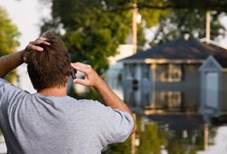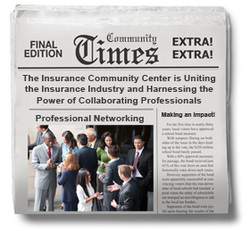|
Flooding is nature's most common natural disaster. The average homeowner is five times more likely to incur flood damage than fire damage. If you live in a high-risk zone, you have a one-in-four chance of experiencing flood damage. Almost 25% of all flood claims come from low- to moderate-risk areas and 90% of all presidential-declared disasters involved flooding. Homeowner's policies may not cover the flood damage, and the out-of-pocket costs can be burdensome.
Flood insurance is designed to provide an alternative to disaster assistance to reduce the escalating costs of repairing damage to buildings and their contents caused by floods. While your homeowner's policy may cover fire, tornado, or even earthquake damage, most EXCLUDE damage caused by flooding. Those that cover SOME flood damage do so by specific endorsement and only for a certain dollar amount. Check with your insurance agent to see what coverage is available. To learn more about flooding, flood risks, residential coverage, commercial coverage, preparation, recovery, etc., visit our Flood Insurance page.
0 Comments
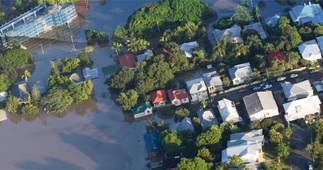 Earthquakes, floods, and other disasters can seriously disrupt normal life. Services may not be available, transportation may be cut off and roads may be blocked. In some cases, you may be forced to evacuate. Be ready to respond to any situation by assembling and maintaining a Disaster Supplies Kit. Click 'Read More' below for the Disaster Supplies Plan. 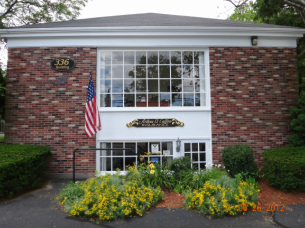 At our Cape Cod Insurance Agency, located in Falmouth, MA - we offer 15 home insurance carriers for your coastal houses. Navigating life's big decisions and developments can be challenging... buying your first home or boat, getting a new car, choosing the right policy to protect yourself and your family on Cape Cod. Those are the moments when all roads lead to Calfee Insurance. We are your local insurance answer to help you, protect you and insure all that's important to you. We understand Cape Cod life, because we're living Cape Cod lives. To learn more, Click Here  CLICK HERE - for a quote on your Home & Auto Package policies! Save The MOST on Your Insurance Policies! 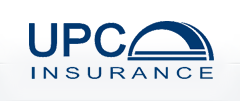 Highlights of United Property & Casualty Insurance Company (UPC)
 There are so many things that should be considered before you purchased insurance. For example; you already know that every community has building ordinances or zoning laws that affect how houses are built or updated. But did you know that there are also laws and ordinances that govern how or whether a house can be repaired after a loss? When you have a loss that damages part of your house, the repairs, in many situations, must be made to the specifications of any regulations that are in effect at the time of the loss. It doesn’t really matter if everything met code when your house was built. What matters now is the new building code. Even more important than that, there are regulations that may compel you to tear down the house if the damage is more than 40–50 percent of its value. You’re probably thinking: “So how does that affect me? Isn’t that what insurance pays for?" Well…the answer is yes and no at the same time! Insurance pays for the cost to repair or replace the damaged part of the building. Think of it this way: if the value of your house is $200,000 and you have $100,000 in damage, insurance pays for the damage (minus your deductible, of course). But now that your house has sustained damage equal to 50 percent of its value, the law kicks in and requires you to tear it down—damaged and undamaged parts—and rebuild the whole thing! Now, since insurance pays for the damaged part of the building, but even the undamaged part has to be torn down, where does the other $100,000 come from? Well, that’s where Ordinance or Law coverage comes in. There are very few total losses; partial losses are far more likely. But a partial loss could trigger the enforcement of an ordinance or law that could cause you to have to pay more than the amount of loss covered by your policy. Additional coverage may be purchased that would help pay for the value of the undamaged part of the house and the increased cost to rebuild according to the new code. Replacement value doesn’t mean upgrade cost what if this happened to you…A fire causes major destruction to your building. Because more than 50% was damaged, a local by-law requires the building to be torn down and rebuilt to current building codes. You’re a responsible person and take the necessary steps to maintain your property. You have replacement cost value on your policy, so you’d be fully covered…right? Not necessarily. Property insurance policies generally have an “Ordinance or Law” exclusion, which means that the policy covers the building as it exists, but it does not cover the cost to upgrade the building to current building codes and ordinances after a loss. Therefore, having “replacement cost” coverage for your building does not mean that you have “upgrade cost” coverage, unless you purchase an “Ordinance or Law endorsement” for your property. Even if a property policy offers some built-in Ordinance or Law protection, often the amount of coverage isn’t sufficient in a major loss. Building codes and zoning laws affect every piece of property no matter how big or small. These laws are continually changing…requiring new or improved features such as better wiring, handicap access, sprinkler systems and more. If a loss situation triggers code upgrades, it could be financially devastating unless you have Ordinance or Law coverage. While some regard this coverage to be important only for older buildings, laws are always changing, and newer buildings can be affected. This is an area of concern for all building owners. How ordinance and law coverage protects you:
|
better Insurance
|
-
HOME
- Send me a Home Insurance Quote >
- FLOOD Insurance, Massachusetts >
- Cape Cod Home Insurance
- Pay Your Home Insurance Bill Online
- Ordinance or Law Coverage
- How to Prevent a Claim on your Home Insurance Policy
- Videos - Cape Cod Real Estate Tips >
- Cape Cod Massachusetts Arbella Insurance Discounts
- Cape Cod Massachusetts Lloyds of London Home Insurance
- Safety Insurance Discounts for Cape Cod, Massachusetts
- MPIUA - MA Property Insurance Underwriting Association "Fair Plan"
- Cape Cod Massachusetts Home Protection Insurance
- Hurricane Preparedness >
-
AUTO
- Send me an Auto Insurance Quote for Cape Cod, Massachusetts
- BOAT Insurance >
- Cape Cod, MA Dept. of Motor Vehicles
- Cape Cod Massachusetts - Report an Auto Insurance Claim
- Auto Insurance Quote - CAR BUYING TIPS : Auto Insurance for Cape Cod, MA
- InControl Driver Training
- Car Insurance for Cape Cod Massachusetts - Arbella Insurance - Send me an Auto Quote >
- Plymouth Rock - Send me an Auto Quote >
- Encompass Insurance Discounts
- Safety Insurance - Send me an Auto Quote >
- Travelers Insurance Discounts
- Progressive Insurance - Send me an Auto Quote
- LIFE
- OFFICES
- ABOUT US
- Stay Home
- Home Insurance Explained
- Agent Login
- Privacy Policy
- Videos - Cape Cod Real Estate Investing, Taxes & Insurance
- Videos - Cape Cod Coastal Real Estate
- Português
Arthur D. Calfee Insurance Agency, Inc. is a friendly local insurance agency proudly offering Massachusetts, Cape Cod and the Islands. A-Excellent AM Best rating, A+ Excellent by the BBB
Using innovative thinking, cutting-edge tools and expert resources at national and local levels, we deliver the best possible outcome on every policy we manage. Need Home Insurance? Easy, Fast, & Secure Home Insurance. Get Free Quotes 100% Online Now! Available 24/7. Affordable Rates. Cover Your Biggest Investments. Get a homeowners insurance quote, find coverage options. We'll help you understand and customize the right home insurance coverage for you.
Home is where your heart is—along with a healthy chunk of your net worth. Get started today with a free homeowner's quote.
Compare home insurance quotes today and save on protection for your biggest investment. Build a Custom Policy & Make the Switch! Our local underwriting professionals focus exclusively on finding the best home insurance, homeowner's insurance, hazard insurance, investment property insurance, flood insurance, flood zone information, vacation home insurance, second home insurance, auto insurance, collector car insurance, business insurance, general liability insurance, property insurance, professional liability insurance, contractor's liability insurance, worker's comp insurance, key man insurance, whole life insurance, term life insurance, group or personal disability, & long-term care insurance policies to patrons in the following Cape Cod, Massachusetts towns, communities and villages: Barnstable, Bourne, Pocasset, Brewster, Buzzards Bay, Centerville, Chatham, Cotuit, Craigville, Dennis, East Dennis, Eastham, Falmouth, East Falmouth, Hatchville, West Falmouth, North Falmouth, Woods Hole, Harwich, Hyannis, Hyannisport, Martha's Vineyard, Nantucket, Marstons Mills, Mashpee, Orleans, Osterville, Provincetown, Sandwich, Sagamore, Sagamore Beach, Truro, Wellfleet, Yarmouth, and Yarmouthport. Real-Time Pricing. Insurance coverage: Wind Damage, Fire Loss, Water Damage. Protect your home and belongings. Low Rates For Your Best Options to Save Money On Great Coverage! Get a quote today. Home insurance helps protect your house and your family.
Using innovative thinking, cutting-edge tools and expert resources at national and local levels, we deliver the best possible outcome on every policy we manage. Need Home Insurance? Easy, Fast, & Secure Home Insurance. Get Free Quotes 100% Online Now! Available 24/7. Affordable Rates. Cover Your Biggest Investments. Get a homeowners insurance quote, find coverage options. We'll help you understand and customize the right home insurance coverage for you.
Home is where your heart is—along with a healthy chunk of your net worth. Get started today with a free homeowner's quote.
Compare home insurance quotes today and save on protection for your biggest investment. Build a Custom Policy & Make the Switch! Our local underwriting professionals focus exclusively on finding the best home insurance, homeowner's insurance, hazard insurance, investment property insurance, flood insurance, flood zone information, vacation home insurance, second home insurance, auto insurance, collector car insurance, business insurance, general liability insurance, property insurance, professional liability insurance, contractor's liability insurance, worker's comp insurance, key man insurance, whole life insurance, term life insurance, group or personal disability, & long-term care insurance policies to patrons in the following Cape Cod, Massachusetts towns, communities and villages: Barnstable, Bourne, Pocasset, Brewster, Buzzards Bay, Centerville, Chatham, Cotuit, Craigville, Dennis, East Dennis, Eastham, Falmouth, East Falmouth, Hatchville, West Falmouth, North Falmouth, Woods Hole, Harwich, Hyannis, Hyannisport, Martha's Vineyard, Nantucket, Marstons Mills, Mashpee, Orleans, Osterville, Provincetown, Sandwich, Sagamore, Sagamore Beach, Truro, Wellfleet, Yarmouth, and Yarmouthport. Real-Time Pricing. Insurance coverage: Wind Damage, Fire Loss, Water Damage. Protect your home and belongings. Low Rates For Your Best Options to Save Money On Great Coverage! Get a quote today. Home insurance helps protect your house and your family.
Testimonials & Endorsements for the Best Insurance Agent on Cape Cod, MA
PHONE: (800) 479-2601 CUSTOMER SUPPORT & SERVICE
Please note: The above is meant as general information to help you understand the different aspects of insurance. This information is not an insurance policy, does not refer to any specific insurance policy, and does not modify any provisions, limitations, or exclusions expressly stated in any insurance policy. Descriptions of all coverages and other features on this page are necessarily brief; in order to fully understand the coverages and other features of a specific insurance policy, we encourage you to read the applicable policy and/or speak to an insurance representative. Coverages and other features vary between insurers, vary by state, and are not available in all states. Whether an accident or other loss is covered is subject to the terms and conditions of the actual insurance policy or policies involved in the claim. References to average or typical premiums, amounts of losses, deductibles, costs of coverages/repair, etc., are illustrative and may not apply to your situation. We are not responsible for the content of any third-party sites linked from this page.
© 2024 Copyright, Arthur D. Calfee Insurance Agency, Inc.
Calfee Cares.® Privacy Policy
Calfee Cares.® Privacy Policy

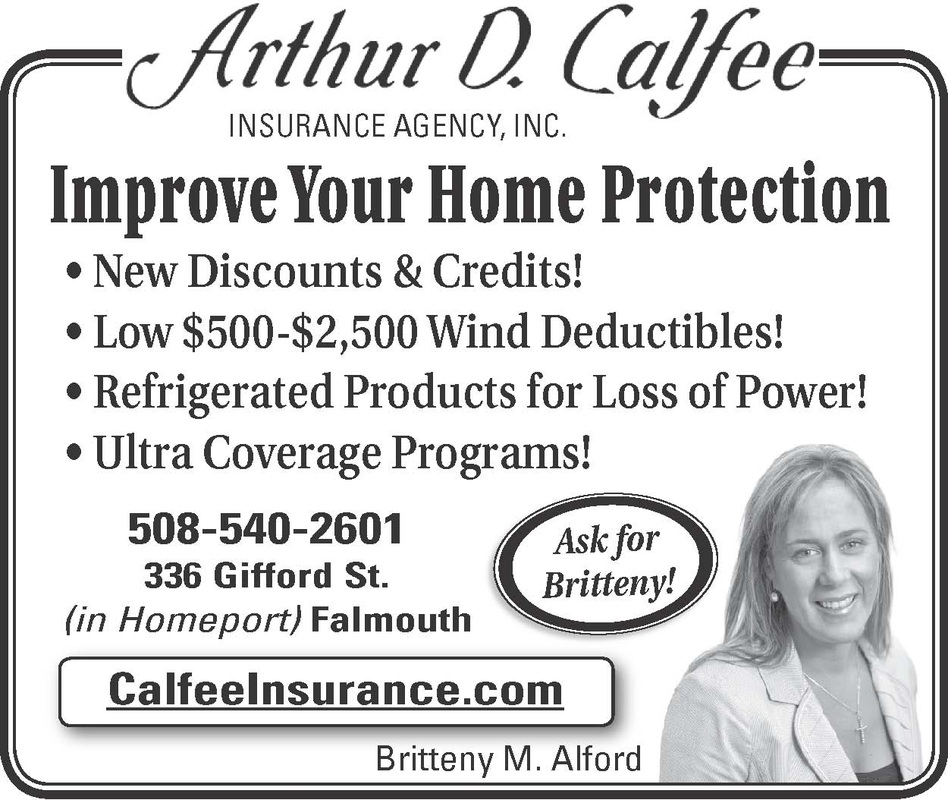





 RSS Feed
RSS Feed





